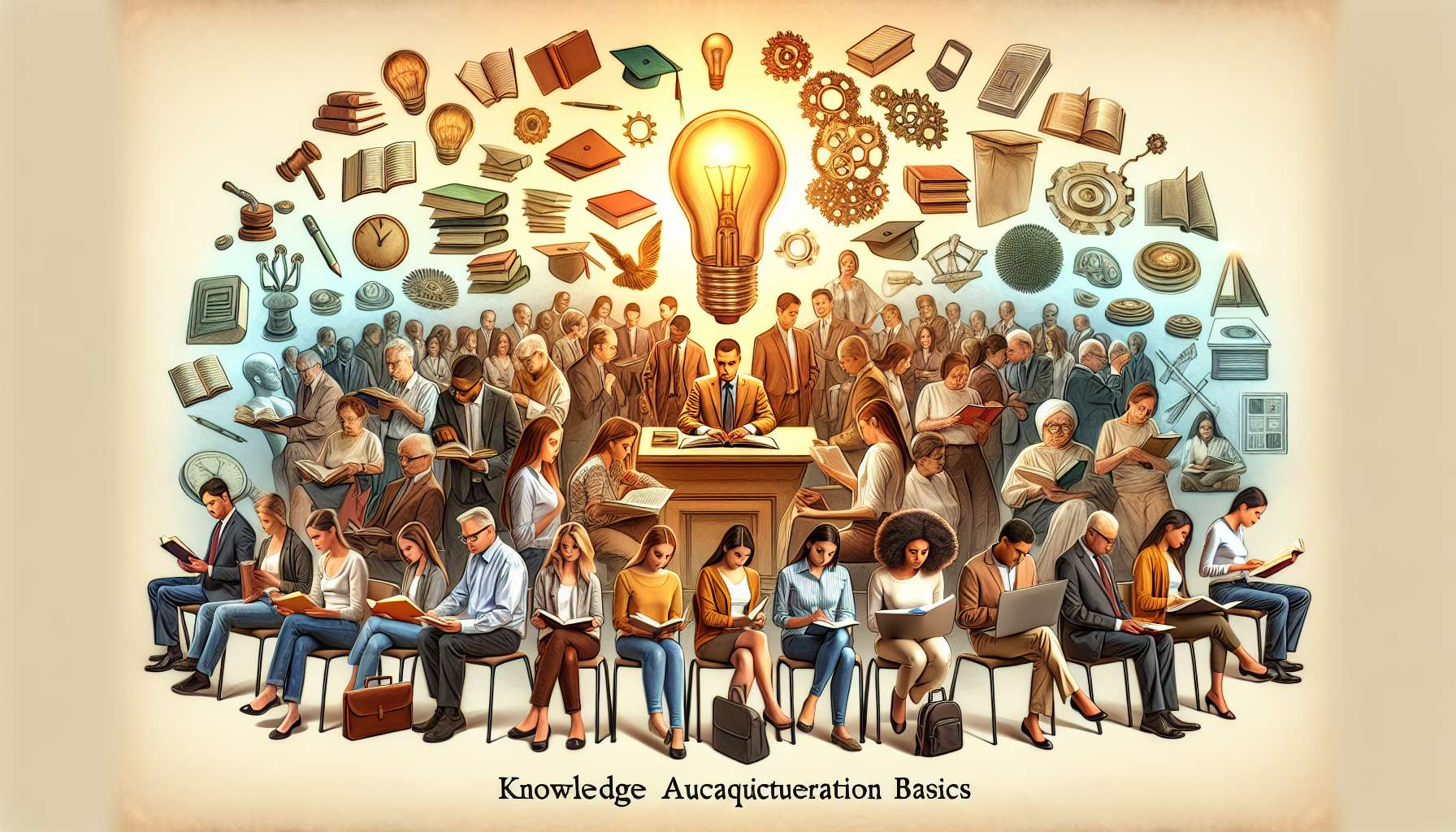Unlocking the Power of Knowledge Fundamentals: A Comprehensive Guide
Knowledge is a powerful tool that shapes our understanding of the world, drives innovation, and empowers individuals and societies. At the core of knowledge lies a set of fundamental principles that govern how we acquire, process, and utilize information. In this in-depth exploration, we delve into the intricate web of ‘Knowledge Fundamentals’, uncovering the key components that underpin our cognitive abilities and intellectual pursuits.
The Essence of Knowledge
What exactly is knowledge, and how do we define it? Knowledge can be broadly understood as information that is acquired through experience, learning, or reasoning. It encompasses facts, skills, concepts, and beliefs that are structured and organized in the mind. The pursuit of knowledge is a fundamental human endeavor, driving us to seek answers, solve problems, and make sense of the world around us.
Knowledge is often categorized into different types, such as explicit and tacit knowledge, procedural and declarative knowledge, or practical and theoretical knowledge. These distinctions highlight the diverse forms and functions of knowledge, each playing a crucial role in our cognitive processes and decision-making.
The Acquisition of Knowledge
How do we acquire knowledge, and what mechanisms facilitate the process of learning? The acquisition of knowledge is a multifaceted phenomenon that involves various cognitive processes, such as perception, memory, attention, and reasoning. From infancy to adulthood, individuals engage in continuous learning experiences that shape their understanding of the world.
One of the key theories that explain how we acquire knowledge is Piaget’s theory of cognitive development. According to Piaget, individuals progress through distinct stages of cognitive development, from sensorimotor to formal operational, as they acquire new knowledge and skills. This developmental framework sheds light on the dynamic nature of knowledge acquisition and the role of experience in shaping cognitive abilities.
Theories of Knowledge
Throughout history, philosophers and scholars have proposed various theories of knowledge that seek to elucidate the nature and limits of human understanding. From Plato’s theory of forms to Kant’s transcendental idealism, these philosophical frameworks offer insights into the epistemological foundations of knowledge.
One prominent theory of knowledge is empiricism, which posits that knowledge is derived from sensory experience and observation. Empiricists argue that all knowledge comes from sensory input and that rationalism alone is insufficient for acquiring true knowledge. This perspective has profound implications for fields such as psychology, neuroscience, and education, where empirical evidence is essential for advancing knowledge.
The Role of Technology in Knowledge Acquisition
In today’s digital age, technology plays a pivotal role in shaping how we acquire and disseminate knowledge. From online learning platforms to artificial intelligence systems, technology has revolutionized the way we access information and communicate with others. The rise of the internet and social media has democratized knowledge, enabling individuals to connect, collaborate, and share ideas on a global scale.
Artificial intelligence (AI) has also emerged as a powerful tool for accelerating knowledge acquisition and discovery. AI systems are capable of processing vast amounts of data, identifying patterns, and generating insights that can enhance human decision-making and problem-solving. The integration of AI technologies in various domains, such as healthcare, finance, and cybersecurity, has opened up new possibilities for advancing knowledge and innovation.
The Limits of Knowledge
While knowledge is a valuable asset, it is essential to recognize its limitations and uncertainties. The quest for knowledge is an ongoing journey characterized by ambiguity, complexity, and paradoxes. As we strive to expand our understanding of the world, we encounter gaps in knowledge, conflicting perspectives, and unanswered questions that challenge our assumptions and beliefs.
One of the central debates in epistemology is the problem of skepticism, which questions the reliability and certainty of knowledge claims. Skeptics argue that knowledge is inherently uncertain and subject to doubt, highlighting the fallibility of human perception and reasoning. This philosophical challenge reminds us of the humility and openness required to navigate the uncertainties of knowledge.
Expert Opinions
Experts in various fields offer valuable insights into the nature and significance of knowledge fundamentals. According to cognitive psychologist Daniel Kahneman, knowledge is shaped by cognitive biases and heuristics that influence our decision-making processes. Kahneman’s research on behavioral economics highlights the role of intuitive thinking and rational deliberation in shaping human judgments.
Philosopher Martha Nussbaum emphasizes the importance of critical thinking and intellectual curiosity in cultivating a robust knowledge base. Nussbaum’s work on the ethics of care and education underscores the ethical dimensions of knowledge acquisition and the need for empathy and compassion in our pursuit of understanding.
Common Misconceptions
There are several common misconceptions about knowledge fundamentals that warrant clarification. One prevalent misconception is the belief that knowledge is static and unchanging. In reality, knowledge is dynamic and evolving, shaped by new discoveries, insights, and interpretations.
Another misconception is the notion that knowledge is solely based on individual intelligence or expertise. While individual competence is essential for acquiring knowledge, collaboration and collective intelligence also play a significant role in advancing knowledge across disciplines and cultures.
Comparative Analysis
Comparing different approaches to knowledge acquisition and dissemination can provide valuable insights into the strengths and limitations of various methodologies. For example, comparing traditional classroom-based learning with online learning platforms can shed light on the effectiveness of digital technologies in facilitating knowledge transfer and retention.
Similarly, comparing scientific knowledge with indigenous knowledge systems can highlight the diverse ways in which different cultures and societies conceptualize and generate knowledge. Recognizing the richness and complexity of knowledge traditions can foster cross-cultural dialogue and mutual understanding.
Conclusion
In conclusion, ‘Knowledge Fundamentals’ form the bedrock of our cognitive abilities and intellectual pursuits, shaping how we perceive, interpret, and apply information. By understanding the essence of knowledge, theories of knowledge, the role of technology in knowledge acquisition, and the limits of knowledge, we can cultivate a deeper appreciation for the complexities and uncertainties of knowledge.
As we navigate the complexities of knowledge acquisition and dissemination, it is crucial to remain open-minded, critical, and reflective in our pursuit of understanding. By embracing diversity, collaboration, and lifelong learning, we can harness the power of knowledge fundamentals to drive innovation, foster social progress, and enrich our collective wisdom.
Remember, knowledge is not just about what we know; it is also about how we know and why we know. Let us continue to explore the depths of knowledge fundamentals and unlock the endless possibilities that await us in the pursuit of truth and wisdom.




